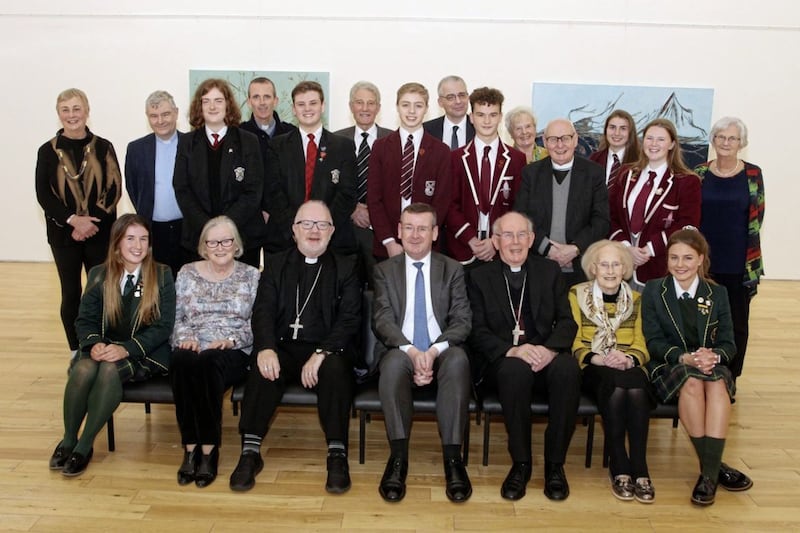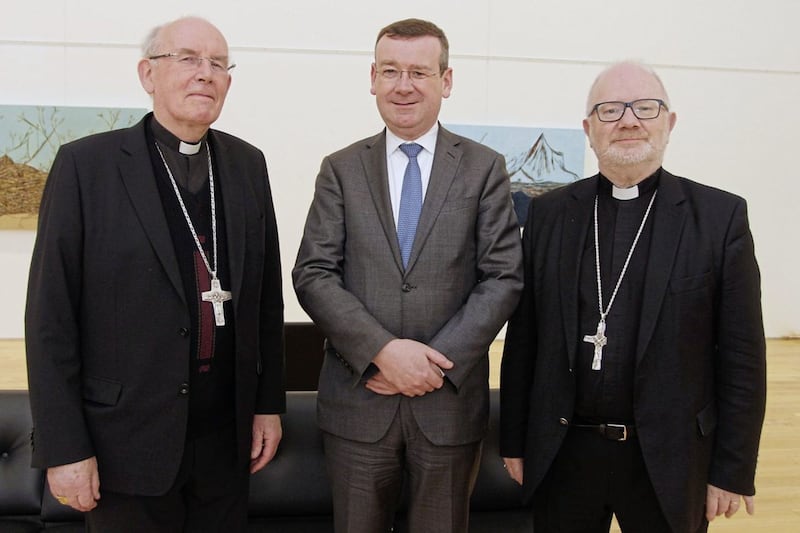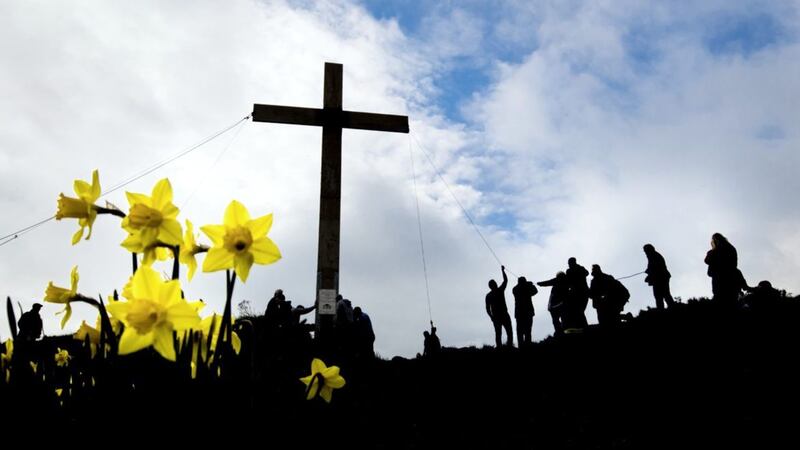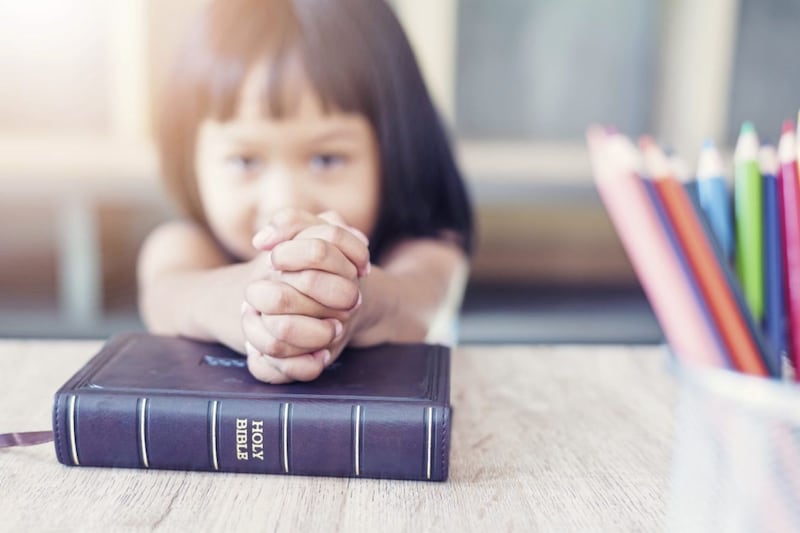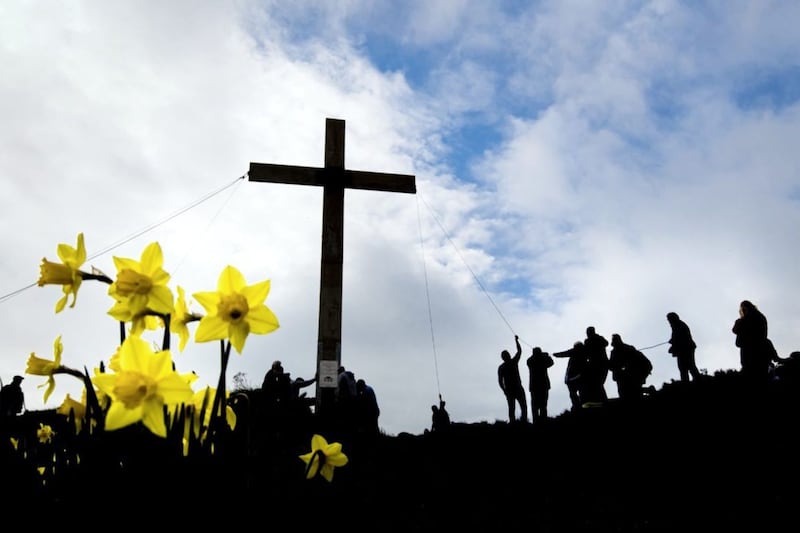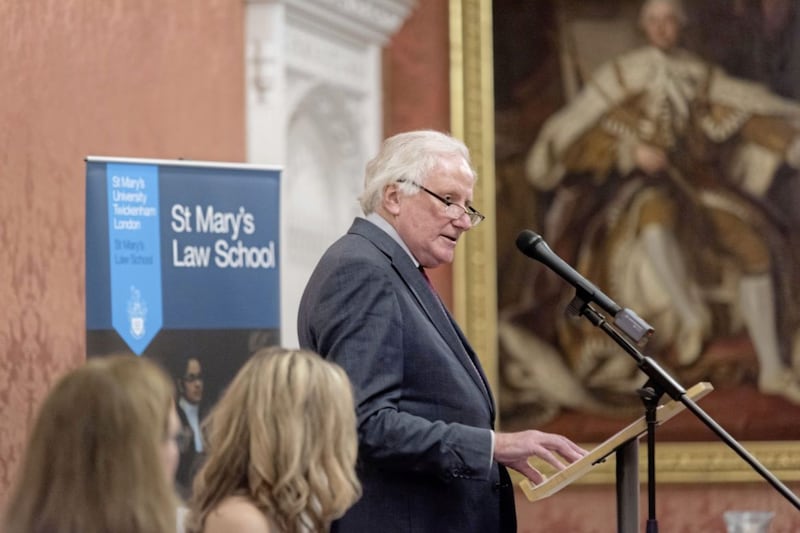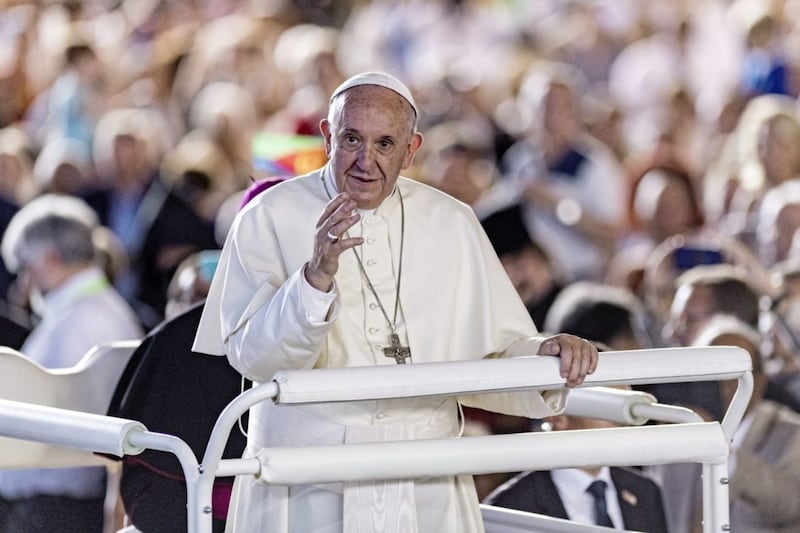IN these fraught times the risk for us all is to imagine that the more familiar - which usually means one's own system and experience - is the norm and all else which we encounter which is therefore different from that is somehow abnormal.
When faced with the 'abnormal', our instant response can be to impose a solution or a viewpoint which might be familiar to us, but alien to the other.
We can in a way expect societies and people to change to our normality or to adapt to changes in a 'fast-forward' way.
Such an approach whether about the adoption of democracy or a hasty application of values, personally or professionally can carry huge risk and result in pushback.
The diplomat in each of us, one would hope, could see the flaws in their own system or person and therefore encounter other cultures and systems with a degree of humility and openness.
That openness could pave the way for fruitful dialogue, unconventional thinking, approaches, and friendship.
It would be misleading to assume that a world that is ever-more connected is in less need of diplomacy and friendship.
Globalisation and the technological revolution may have ushered in new methods of diplomacy and given faster access to information, but it has not yet given faster access to meaning, and for as long as that is the case there is, even more, need for diplomacy and friendship to set the wider contemporary context and grammar.
Nothing can replicate the exchange of views and perspectives with those from different cultures and countries and doing so in the spirit of diplomatic friendship.
In my view, and despite a changing world, the nature of what might be called old-fashioned diplomacy remains alive and very much needed.
So amidst a world of what might appear to be drifting towards turmoil, or even in it, how do we remain hopeful? How do we retain a Christian optimism as we enter a new year?
Why? Because I, in a way, integrate my life of faith, diplomacy, education and politics.
If the latter existed without the former, they would be weaker, perhaps without a framework which invites us to do better.
So amidst a world of what might appear to be drifting towards turmoil, or even in it, how do we remain hopeful?
How do we retain a Christian optimism as we enter a new year?
Perhaps this quote - from Queen Elizabeth in her 2014 Christmas message - sums it up: "For me, the life of Jesus Christ, the Prince of Peace, whose birth we celebrate, is an inspiration and an anchor in my life.
"A role model of reconciliation and forgiveness, he stretched out his hands in love, acceptance and healing. Christ's example has taught me to seek to respect and value all people of whatever faith or none."
The Christian message - in its beauty and revolutionary aspect - is counter-cultural.
It does not accept turmoil as inevitable. It invites goodness to prevail and to build a just order.
Christianity does not write us off if we fail to get the choice between right and wrong correct in all circumstances.
The world might do that, but Christ does not. Rather, what we are asked to do is after each fall, each mistake, or lack of courage or faith, is to have the humility to stand up again and start all over.
We are aided in that task through grace, which tackles the deficiencies in our humanity.
So there is nothing inevitable about turmoil. And yet what we know in our personal realm, we somehow forget in societal terms.
The Christian message - in its beauty and revolutionary aspect - is counter-cultural. It does not accept turmoil as inevitable. It invites goodness to prevail and to build a just order
Do we build up the Kingdom on Earth? Do we build a just and forgiving society? Do we challenge those growing chorus of voices in our midst that do not want a spirit of forgiveness or redemption in our national life?
The message of Christ is about redemption, not punishment. We see that in the Advent season; it is about preparing for the arrival of the saviour child, about being reconciled again.
And unlike our relations with other human beings, Christ has no time limit, no threshold, and no quotas for 'sorry'.
It is a truly unconditional love that simply relies on our response to reconcile. Only Christ knows what is truly written on our hearts and it is that knowledge that never gives up on us.
In that sense, and despite the wonder and beauty of many human relations that we have, the relationship with Christ is truly unique - it is unconditional because it never gives up.
It is a loving relationship that is constant - that never walks away.
If we believe that - and to be honest with you, I have to constantly remind myself how different that relationship with Christ actually is - then what are we meant to do with it?
How are we meant to live out our lives in turbulent times? I believe we have to do so in the world and not apart from it.
There is a phrase, which Pope Benedict used, which has often been misunderstood or even, misrepresented - it is the concept of the creative minorities.
My faith demands of me that I must not be afraid to live it. Living a faith that serves the common good is not a threatening act
It is not even his phrase; it actually is Arnold Toynbee's. Benedict credits Toynbee with that and both see the creative minority not as retreating to a desert where a utopia can be created, but acting as a source of renewal to the world.
For at another time of turmoil in our world in the inter-war period of the 1930s, Oswald Spengler and Toynbee had a debate about the future of the West.
Spengler predicted that it, like all other civilisations, would have its rise, dominance and fall. Toynbee disagreed because he said the West was different - it had Christianity, and it would act as a dynamo of renewal helping the civilisation to sustain itself.
So how can you be that creative minority? How can you give?
For each of us, it will be according to what we have been given. Each will also be asked to give on the basis of our natural talents.
St Paul tells us "our gifts differ according to the grace given us".
That is a reminder to us that we are part of a community - the living body of the Church.
We are not to look at what we do not have, but what we have. We are to make the most of that and as such we will then contribute to the proper functioning of the communities we are in with each using their God-given talents.
And as for thinking that our effort does not count or it isn't worth it, I recall the words of the late St Pope John Paul II as the war in Iraq drew near in 2003: "Yet everything can change. It depends on each of us.
"Everyone can develop within himself his potential for faith, for honesty, for respect of others and for commitment to the service of others.
"It also depends, quite obviously, on political leaders, who are called to serve the common good."
We have each been invited to live out the Kingdom in good times and bad, to be beacons of hope, to be that creative minority
And here, closer to home, things changed. Today we might again fear a sliding back. But we know it changed, and for the better.
The border towers that I first saw rising from my classroom as a schoolboy, I later heard about them being dismantled during briefings in Downing Street.
And today thankfully I don't have to choose between faith and citizenship, and the civic identity we are building is broad enough to capture the complexity of identities that exist in Northern Ireland.
I hope for the sake of our students that it always remains so.
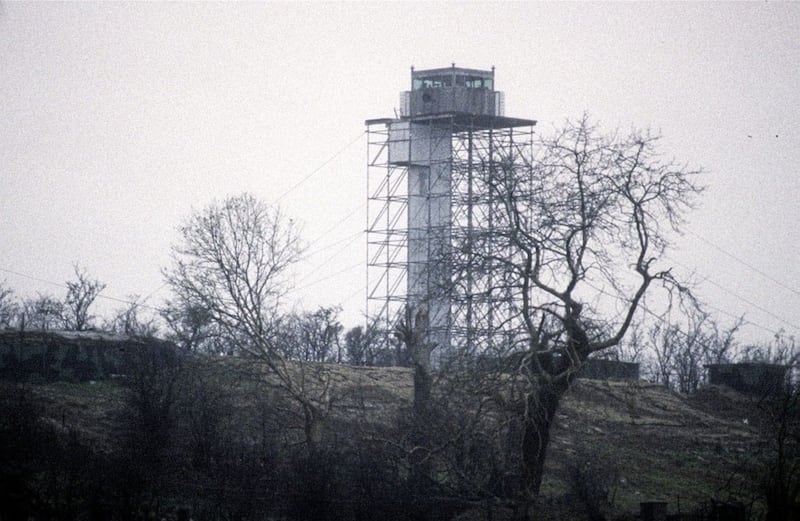
I remain hopeful in this age of turmoil. Because I believe in providence and that we are in a particular context for a particular purpose.
What that purpose is, how we got here, or how it will play out, may not be clear to us and indeed, in my experience, it rarely is.
But here Blessed John Henry Newman's words constantly give me a meaning as I pass through life and its many experiences: "God has created me to do Him some definite service. He has committed some work to me, which He has not committed to another.
"I have my mission. I may never know it in this life, but I shall be told it in the next. I am a link in a chain, a bond of connection between persons.
"He has not created me for naught. I shall do good - I shall do His work.
"I shall be an angel of peace, a preacher of truth in my own place, while not intending it if I do but keep His commandments.
"Therefore I will trust Him, whatever I am, I can never be thrown away. He does nothing in vain.
"He knows what he is about. He may take away my friends. He may throw me among strangers.
"He may make me feel desolate, make my spirits sink, hide my future from me.
"Still, He knows what He is about."
Those words resonate very strongly with me and have done so constantly throughout my adult life.
You can sometimes get lost in trying to get to the bottom of what your purpose is in this life. That can lead to much inaction.
In reality, I think you just have to get on with the job you find yourself in and be open to God's plan for you, however that unfolds in your life.
I am not saying that we should be despondent or stop striving, but that we should be open to what arises in our life and respond positively to what is laid out in front of you.
The true purpose might never be revealed to us in this life and we should be cautious about striving for that desire for knowing what the future holds.
My faith demands of me that I must not be afraid to live it. Living a faith that serves the common good is not a threatening act.
It is simply the manifestation of an unconditional relationship between an individual - a faith community - and the Creator.
The legacy which we have received will only be handed on in a better state if we engage if we build, if we invite and promote.
Pope Benedict calls each of us, in the words of Toynbee, to be part of a creative minority.
Such a minority he says has as its primary task the renewal of the society in which we and our descendants will live; a society based on a hope for the future and not a fear.
But in all of this, we have a choice. We can be authentic to what we have received in the gift of faith, or we can reject it.
But let us not be complacent about what we would be rejecting for ideas have consequences and the ideas we foster today will have a lasting impact.
Turmoil becomes inevitable, and the new despondency embedded, and a world without hope, operating on base instincts with all its rawness, becomes the norm.
As people of faith, offer hope, strive for it and engage and do not accept an inevitable descent into chaos.
Ladies and gentlemen, we have each been invited to live out the Kingdom in good times and bad, to be beacons of hope, to be that creative minority.
Your response to the growing turmoil must be a Christian-inspired hope, not a naivety, but a grounded hope, equipped with centuries of wisdom and teaching - a gift to the world that reminds humanity of its high points, not its low points.
And to those of you young people at the start of your life, be inspired with that hope - a hope that unites you with far more people than anything else in this world, a hope based on a faith that can give you a global grammar to understand and communicate with those who are different to you.
May you discover your unique role, and maybe you might consider how you could contribute, perhaps even as diplomats or politicians, to building bridges in the wake of despair and destruction.
From 'Living for the Kingdom in a Time of Turmoil', an Advent lecture for the Armagh Cathedrals' Partnership.
Francis Campbell is from Rathfriland, Co Down and is Vice-Chancellor of St Mary's University, Twickenham, London. His wide experience in the British Diplomatic Service includes being British Ambassador to the Holy See - the first Catholic to hold the role - from 2005 to 2011. He was also an adviser to Tony Blair when he was Prime Minister, worked for Amnesty International and headed the Foreign and Commonwealth Office's policy unit. He joined St Mary's University, Twickenham in 2014.
